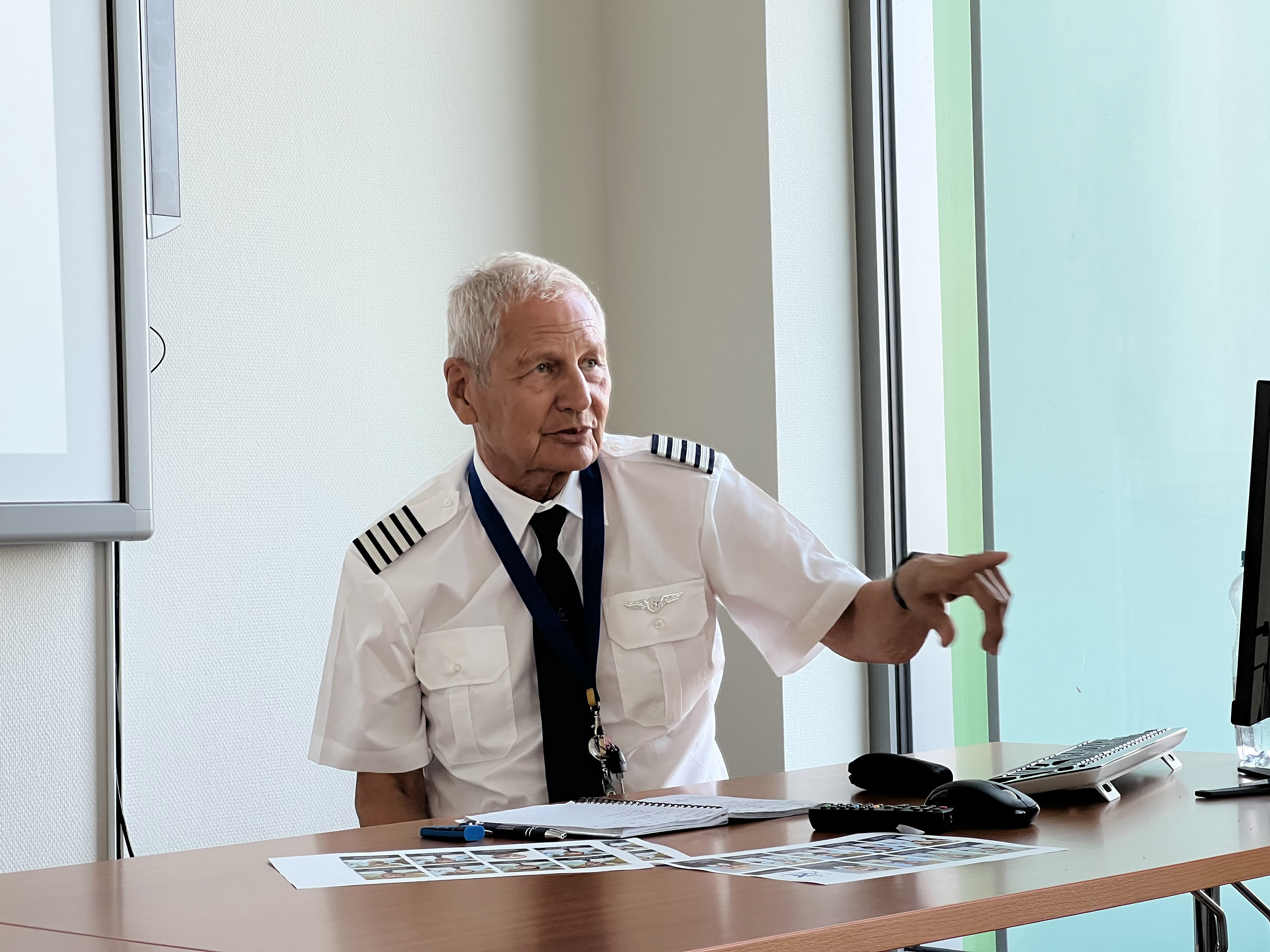Capt. György Tóth is the new Chief Practical Instructor of our Company as of July this year. With a very distinguished and prestigious aviation background, he has already introduced hundreds of prospective pilots to the mysteries of aviation, in addition to more than 28,000 flying hours. Perhaps it is enough to say that he has spent almost 5,000 hours instructing and examining pilots on the Airbus A320 simulator.
According to him, the idea of becoming a pilot was born when he was five years old. Then, after another five years, a visit to the three-border mountain only confirmed the early idea, and the path from dream to reality was straightforward when he was fourteen and could start flying.
 Balázs Nebehaj (left), Chief Theoretical Instructor and Capt. György Tóth (right), Chief Practical Instructor
Balázs Nebehaj (left), Chief Theoretical Instructor and Capt. György Tóth (right), Chief Practical Instructor
Like many others who have persevered in this profession for a long time, he began his introduction to the profession in a glider, which he then completed at the Nyíregyháza College of Civil Aviation. He loved the college so much that he stayed on as a pilot instructor after graduating.
Then, at the first opportunity (after a few fiascoes), he transferred to Malév, where he spent almost three decades. In the meantime, he went abroad for a few years, to Taiwan to work on his other big dream, the Jumbo, the Boeing 747. When he returned to Malév after six years, he played an essential role in the creation of the airline Malév Express. This small independent unit was a subsidiary of Malév. When Wizz Air was formed, the flight operation was set up with a very, very serious effort, in which he played a major role. He retired after more than ten years as a pilot-manager and active captain. Of course, he has been working ever since and is involved in training pilots as a senior instructor and examiner.
 Capt. György Tóth
Capt. György Tóth
You can tell that he still loves and enjoys his job, teaching and examining. He believes that it is all about the teacher and the student or candidate trying to do their best. Asked if he is a strict teacher for future pilots, he says that in every situation he tries to create a relaxed atmosphere, giving the other side the conditions to perform at their best, but at the same time, expectations must be met. No exceptions or excuses!
It is also very important later on, and then in commercial aviation, that the pilot should be able to manage himself, minimise the influence of his private life on his work, be able to cooperate with his staff in the most extreme climatic conditions. You must be mentally stable and well motivated for this profession.
Capt. György Tóth, we wish you the best of luck!


 HU
HU